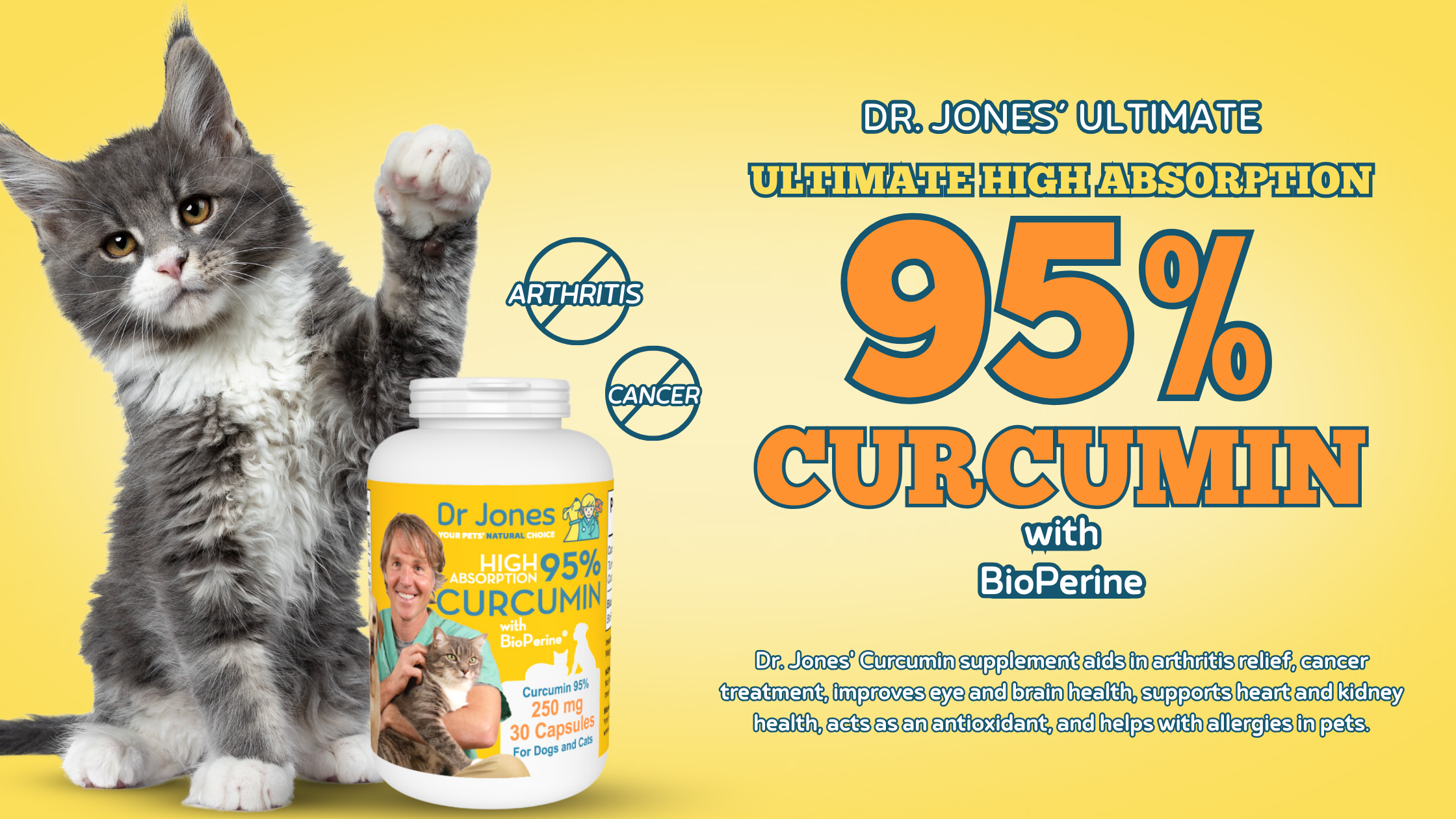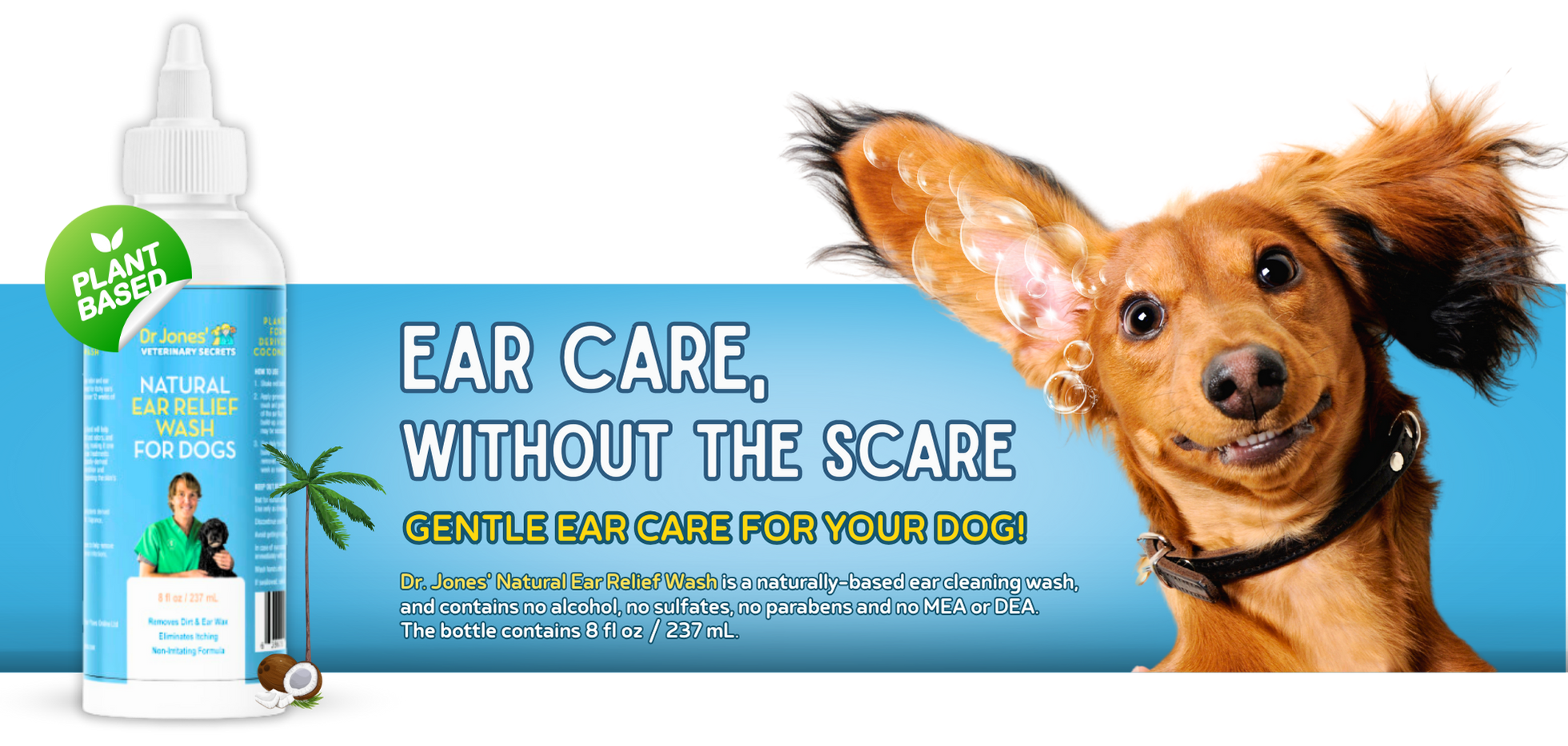How to Manage Your Pet’s Dental Health Without Breaking the Bank

Dental care for Dogs and Cats can be very expensive going to the vet…
Before we get into the ways to help your dog/cat’s teeth at home, may I suggest something that can naturally lower gum inflammation?
The active ingredient in the spice turmeric (95% curcumin), is an exceptional anti-inflammatory, which is what you WANT when you have inflamed gums (gingivitis).
Meaning they can also be beneficial for dental health, along with acting as a natural pain killer.
We have a ‘newish’ 95% curcumin supplement:
It is very highly absorbable – BCM-95® (CURCUGREEN®) is 700% more bioavailable than regular curcumin, and with piperine (BioPerine®) added, absorption is enhanced even further (piperine has been shown to enhance absorption of curcumin by up to 2000%)
Dr. Jones’ Ultimate HIGH ABSORPTION Curcumin for Dogs and Cats


The DENTAL Debate
Say someone suggested that your dog ‘could benefit’ from a dental, and maybe your feeling pressure to get your dog/cat’s teeth cleaned
But it can be very pricy, and NOT always necessary..
This is what you should know…
Dental Disease is VERY common, with bacteria in the mouth (plaque), turning to tartar, then affecting the gums (gingivitis)
It can be very severe which WOULD require a veterinary Dental Scale and Polish


Brushing Your Dog’s Teeth
Just like us, our dogs need regular dental care. To start, you’ll need a standard toothbrush and dog-specific toothpaste. A great alternative to dog toothpaste is baking soda—just remember never to use human toothpaste as it can be toxic to dogs. When brushing, pay special attention to the gum line, where most dental issues like gingivitis occur.
Incorporating Fruits and Vegetables
Fruits and vegetables aren’t just good for us; they’re beneficial for dogs too. Crunchy options like carrots and apples can help reduce tartar and plaque buildup on their teeth due to their abrasive texture.
The Benefits of Raw Meaty Bones
Feeding your dog raw meaty bones twice a week is not only a treat for them but also helps keep their teeth clean. The abrasive action of chewing these bones aids in maintaining shiny teeth without the risk of dental fractures.

Using Plaque Off
Plaque Off is a natural product suitable for both dogs and cats. It’s rich in natural iodine and packed with essential vitamins and minerals. This product helps prevent plaque from sticking to the mouth’s surfaces and softens hard tartar deposits. Depending on your dog’s weight, the dosage varies from one to two scoops daily, with visible improvements typically seen after 4-6 weeks.
Dental Sprays: Leba III
Leba III dental spray is an excellent choice for your dog. It contains herbs like mints and roses, stabilized in ethyl alcohol and distilled water. These ingredients stimulate enzymes that change the chemistry in the mouth, softening tartar. Administer this spray twice daily for best results, with noticeable effects after continuous use.
Coenzyme Q10 for Gum Health
Coenzyme Q10 (CoQ10) is crucial for energy generation and is found in every cell of the body. It’s particularly vital for heart and gum health. Studies have shown that low levels of CoQ10 are linked to periodontal disease. For dogs, I recommend a dose of 1mg per pound.
Green Tea Rinse
For a simple and natural method to reduce plaque and gum inflammation, try a Green Tea Rinse. Brew a cup of green tea and apply it to your dog’s gums using a syringe twice daily. This treatment can be continued indefinitely to maintain oral health.
Considering Non-Anesthetic Teeth Cleaning
Traditionally, I’ve been skeptical about non-anesthetic teeth cleaning, but experiences with my small dog have opened my mind to its benefits. This method can be particularly useful for pets that may not be ideal candidates for anesthesia.
Home Dental Care Innovations
Lastly, home dental care advancements like Ultrasonic Scalers are worth exploring. These devices can be a cost-effective way to maintain your pet’s dental hygiene between professional cleanings.
Remember, maintaining your pet’s dental health is integral to their overall well-being. Consider these tips and consult with your veterinarian to choose the best dental care routine for your dog. Stay tuned as I explore more about home dental care options like the ultrasonic scaler.
P.S. I was surprised by how quickly plaque and tartar returned on my dog Tula after her last dental cleaning—this has me considering more home-based solutions.
P.P.S. Our 95% Curcumin Supplement for Dogs and Cats can also help reduce gum inflammation, providing another layer of support for your pet’s dental health. It’s highly absorbable with anti-inflammatory, antibacterial, and antioxidant effects, making it an excellent addition to your pet’s health regimen.


Thank you . X
Please could you recommend something suitable to aid Hyperplasia which has caused the gums in my giant breed dog cover his bottom teeth .
Thank you very much
We do have an article that can help you:
There’s a good chance that it’s affecting you, your dog or your cat.
———————————————-
New Holistic Arthritis Treatment
———————————————-
Here is one which interests me, and should be of interest to you:
Cetyl myristoleate is a fatty acid.
It was isolated in Swiss albino mice, which for some Darwinian wonder, never develop arthritis.
It also seems to be an effective joint lubricant and anti-inflammatory.
Cetylated fatty acids are also used for diseases in which the body attacks itself (autoimmune diseases) including Sjogren’s syndrome, systemic lupus erythematosus (SLE), and multiple sclerosis (MS).
Some people use cetylated fatty acids for psoriasis, fibromyalgia, emphysema, benign prostatic hyperplasia (BPH), silicone breast disease, various types of back pain, leukemia and other cancers, and a disease that involves inflammation of the blood vessels called Behcet’s syndrome.
Cetylated fatty acids are applied to the skin for osteoarthritis.
———————————
Cetyl myristoleate for pets
———————————
Members of the American Holistic Veterinary Medical Association have been using Myristin® since 1996 for dogs, cats, and other small animals. In 2008, EHP Products introduced a specific veterinary product for dogs and cats, a tasty chewable tablet. The new Hip and Joint Formula combines Glucosamine Sulfate, MSM, and other joint nutrients along with Myristin® into a convenient scored tablet so well-flavored with Prime Rib of Beef, Bacon and Liver that it can even be fed as a treat.
Doses: The Myristin dose is 2-3 tabs per day, based on body size.
Hi Dr.Jones, I’m considering getting my 22 month old dog’s teeth professionally cleaned, but I’m concerned about how the drugs and/or anesthesia could affect his health. I’ve recently converted to a holistic dentist for my personal dental care after reading about the long-term effects of the gas and the substances that are traditionally used in dental procedures. His teeth are quite bad and I have tried using the daily water supplement, brushing, and bones occasionally, but that hasn’t been consistent or effective enough. Is it safe to get him a professional teeth cleaning? Thank you so much for everything you do, I love your content and products!
Yes, you can